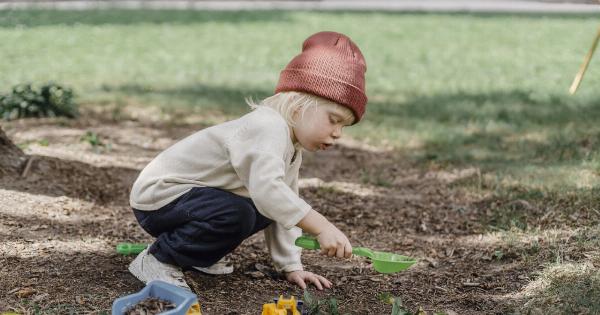As children grow and develop, their brains go through crucial stages of growth and change. The environment in which they live and play plays a significant role in influencing their brain development.
In recent years, researchers have been delving into the impact of natural environments on children’s brain development. Studies have shown a range of positive effects that exposure to nature can have on a child’s cognitive, emotional, and physical well-being.
Improved Cognitive Function
Natural environments provide a rich and diverse sensory experience for children, stimulating their brains and enhancing their cognitive function.
Research has shown that exposure to nature can improve attention span, focus, and concentration in children. Being in nature helps to reduce mental fatigue and restore attention capacity, which in turn aids cognitive functioning. Additionally, exposure to natural settings has been linked to enhanced problem-solving skills and creativity in children.
Reduced Stress and Anxiety
In today’s fast-paced and technology-driven world, children are increasingly exposed to stress and anxiety. However, spending time in natural environments has been found to have a calming effect on children’s minds.
Nature provides a soothing and peaceful setting that helps to reduce stress levels and promote relaxation. Studies have also shown that exposure to nature can decrease symptoms of anxiety and improve overall emotional well-being in children.
Enhanced Physical Health
Outdoor play in natural environments offers numerous opportunities for physical activity and exercise. Nature encourages children to engage in free play, explore, and be physically active.
Activities such as running, climbing, jumping, and playing various outdoor games not only build strength, balance, and coordination but also contribute to overall physical fitness. Regular physical activity in natural settings helps to prevent childhood obesity and promotes cardiovascular health.
Improved Social Skills
Natural environments provide a unique setting for children to interact and engage with others. Whether it’s at a park, on a nature trail, or in a forest, children can socialize, cooperate, and develop important social skills.
Natural environments foster imaginative play, collaboration, and problem-solving among children, leading to the development of better social skills. The open and unstructured environment of nature allows children to negotiate, communicate, and cooperate, which are essential skills for building healthy relationships.
Increased Resilience and Attention Restoration
Exposure to natural environments has been linked to increased resilience in children. Nature provides opportunities for children to face and overcome challenges, promoting resilience and a sense of mastery.
Additionally, spending time in nature allows for attention restoration. Natural environments are free from the constant sensory overload that modern environments often present. The calm and peacefulness of nature helps to restore mental fatigue and improve attention span in children.
Stimulated Imagination and Creativity
Natural environments serve as a canvas for nurturing imagination and creativity in children.
The diverse natural elements, such as trees, plants, rocks, and animals, ignite a child’s imagination and offer endless possibilities for play and exploration. Children can create imaginary worlds, build forts, and engage in pretend play that enhances their creativity and imagination. Nature acts as a catalyst for creative thinking and problem-solving skills, nurturing a child’s innate curiosity.
Promotes Environmental Stewardship
Exposure to natural environments inspires a sense of wonder, appreciation, and respect for the world around us. Children who spend time in nature develop a deep connection with the environment and learn to value its beauty and resources.
This connection often leads to a desire to protect and conserve nature, fostering a sense of environmental stewardship. Children who grow up with a strong connection to nature are more likely to become environmentally conscious adults who prioritize sustainability and environmental conservation.
Better Academic Performance
Research has indicated that children who have regular exposure to natural environments tend to perform better academically.
Spending time in nature enhances cognitive function, attention span, and problem-solving abilities, which can have a direct positive impact on academic performance. Additionally, the peaceful and calming effects of nature help reduce stress levels, making children more receptive to learning.
Enhanced Overall Well-being
Natural environments contribute to the overall well-being of children. The combination of physical activity, sensory stimulation, and opportunities for exploration and play leads to improved mental, emotional, and physical health.
Time spent in nature promotes a sense of joy, curiosity, and contentment in children, fostering a positive outlook on life. The positive effects of natural environments on children’s brain development ultimately contribute to their overall well-being and quality of life.
Conclusion
Exposure to natural environments is vital for the optimal brain development of children. The positive effects of nature on cognitive function, emotional well-being, physical health, and social skills are undeniable.
It is crucial to create opportunities for children to engage with nature and experience its numerous benefits.
Whether it’s through regular visits to parks, nature-based playgroups, or school programs that incorporate outdoor learning, providing children with access to natural environments is an investment in their overall development and future well-being.






























